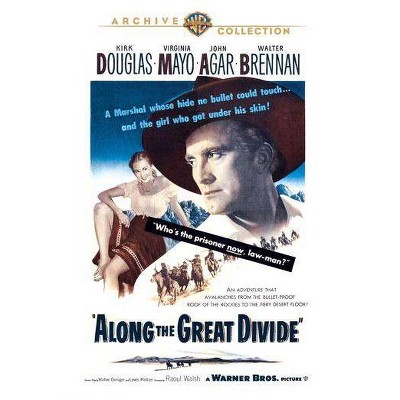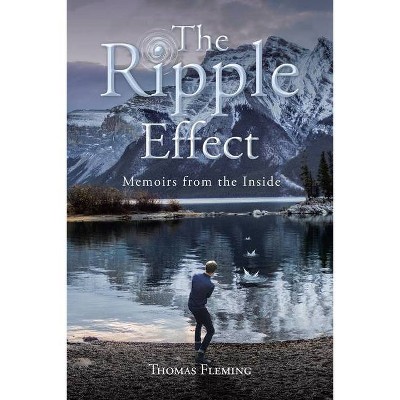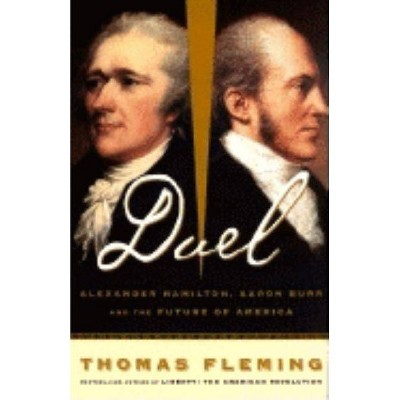The Great Divide - by Thomas Fleming (Paperback)
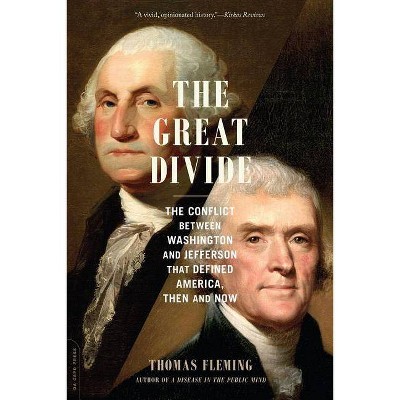
Similar Products
Products of same category from the store
AllProduct info
<p/><br></br><p><b> About the Book </b></p></br></br>"In the months after her husband's death, Martha Washington told several friends that the two worst days of her life were the day George died-- and the day Thomas Jefferson came to Mount Vernon to offer his condolences. What could elicit such a strong reaction from the nation's original first lady? Though history tends to cast the early years of America in a glow of camaraderie, there were, in fact, many conflicts among the Founding Fathers-- none more important than the one between George Washington and Thomas Jefferson. The chief disagreement between these former friends centered on the highest, most original public office created by the Constitutional Convention, the presidency. They also argued violently about the nation's foreign policy, the role of merchants and farmers in a republic, and the durability of the union itself. At the root of all these disagreements were two sharply different visions for the nation's future. Acclaimed historian Thomas Fleming examines how the differing temperaments and leadership styles of Washington and Jefferson shaped two opposing views of the presidency, and the nation. The clash between these two gifted men, both of whom cared deeply about the United States of America, profoundly influenced the next two centuries of America's history and resonates in the present day"--<p/><br></br><p><b> Book Synopsis </b></p></br></br>In the months after her husband's death, Martha Washington told several friends that the two worst days of her life were the day George died -- and the day Thomas Jefferson came to Mount Vernon to offer his condolences. <p/> What could elicit such a strong reaction from the nation's original first lady? Though history tends to cast the early years of America in a glow of camaraderie, there were, in fact, many conflicts among the Founding Fathers -- none more important than the one between George Washington and Thomas Jefferson. The chief disagreement between these former friends centered on the highest, most original public office created by the Constitutional Convention -- the presidency. They also argued violently about the nation's foreign policy, the role of merchants and farmers in a republic, and the durability of the union itself. At the root of all these disagreements were two sharply different visions for the nation's future. <p/> Acclaimed historian Thomas Fleming examines how the differing temperaments and leadership styles of Washington and Jefferson shaped two opposing views of the presidency -- and the nation. The clash between these two gifted men, both of whom cared deeply about the United States of America, profoundly influenced the next two centuries of America's history and resonates in the present day.<p/><br></br><p><b> Review Quotes </b></p></br></br><br><b>Praise for <i>The Great Divide</i></b> <p/><b>Named one of the best books of 2015 by <i>Kirkus Reviews</i></b> <p/>Historians often speak of the conflict between Jefferson and Hamilton. Tom Fleming rightly focuses on Jefferson and Washington, for it was in the nexus of their competing visions of the nation's destiny that the United States truly took shape. In this superb book, Fleming compellingly captures the drama of this clash of titans, showing how its outcome made the difference between national ruin and prosperity.--<b>Edward G. Lengel</b>, Director, Papers of George Washington and author of <i>General George Washington, A Military Life</i><br><br><i>The Great Divide</i> has a dramatic flow to it that informs and entertains. The book brings to life prominent characters and events that shaped American political development.--<i><b>The Historian</b></i><br><br>George Washington and Thomas Jefferson were both tall Virginians who made curcial contributions to winning American independence. But they were otherwise polar opposites, with wildly diverging visions of their fledgling nation's destiny. In <i>The Great Divide</i>, Thomas Fleming quarries a lifetime's study of America's turbulent Founding Era to recount a character-clash waged against the backdrop of chronic domestic discord and overshadowed by blood-soaked revolution in France. The author's robust prose leaves no doubt where his own sympathies lie, but all readers of history will relish his gripping exploration of a conflict between realism and idealism that still resonates today.--<b>Stephen Brumwell</b>, author of <i>George Washington: Gentleman Warrior</i> and winner of the George Washington Book Prize <p/>"Prolific historian Fleming delivers a vivid, opinionated history of this conflict.... Among historians, Jefferson's star has been falling for 50 years. Fleming's frank hostility puts him at the far end of the scale, but he makes a fascinating case that Jefferson's charisma--which peaked early with the Declaration of Independence--was accompanied by fanciful political beliefs that continue to exert a malign influence on the office of the presidency."--<b><i>Kirkus Reviews</i></b> <p/>An absorbing book that will enlighten many and shock some.--<b>What Would the Founders Think?</b><br><p/><br></br><p><b> About the Author </b></p></br></br><b>Thomas Fleming</b>, a distinguished historian and author of more than fifty books, was a frequent guest on PBS, A&E, and the History Channel. He also contributed articles to <i>American Heritage, MHQ: The Quarterly Journal of Military History</i>, and many other magazines.
Price History
Price Archive shows prices from various stores, lets you see history and find the cheapest. There is no actual sale on the website. For all support, inquiry and suggestion messages communication@pricearchive.us
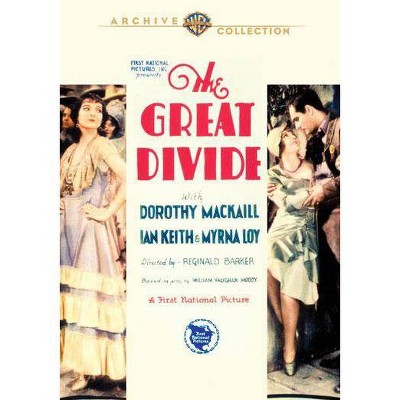
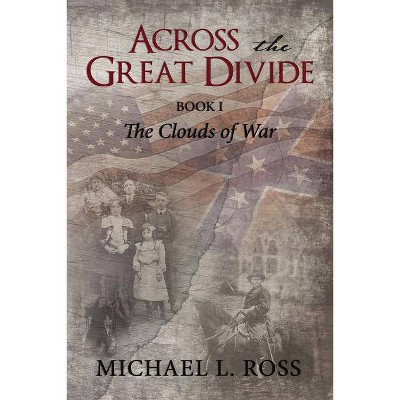
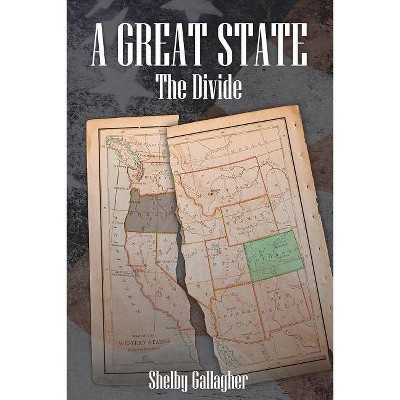
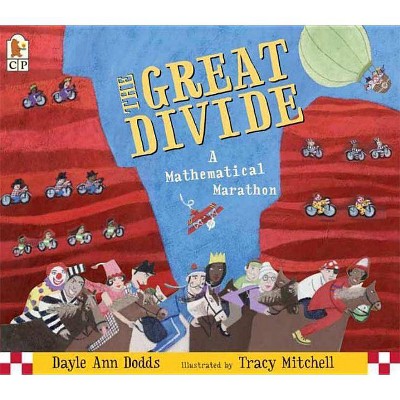
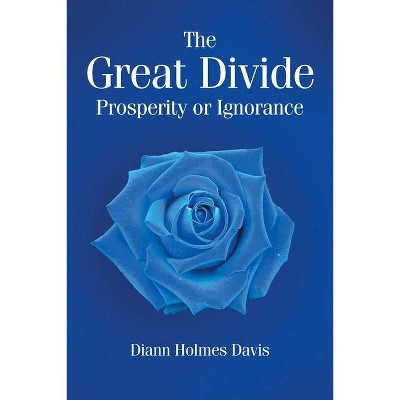
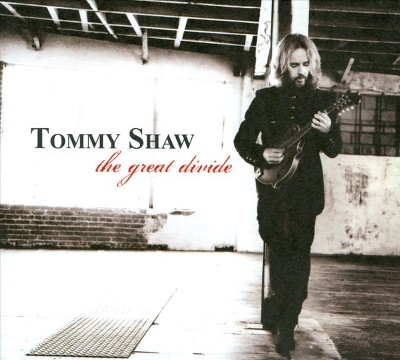
![Along the Great Divide [DVD] [1951]](https://pisces.bbystatic.com/image2/BestBuy_US/images/products/1895/18950697_so.jpg)
